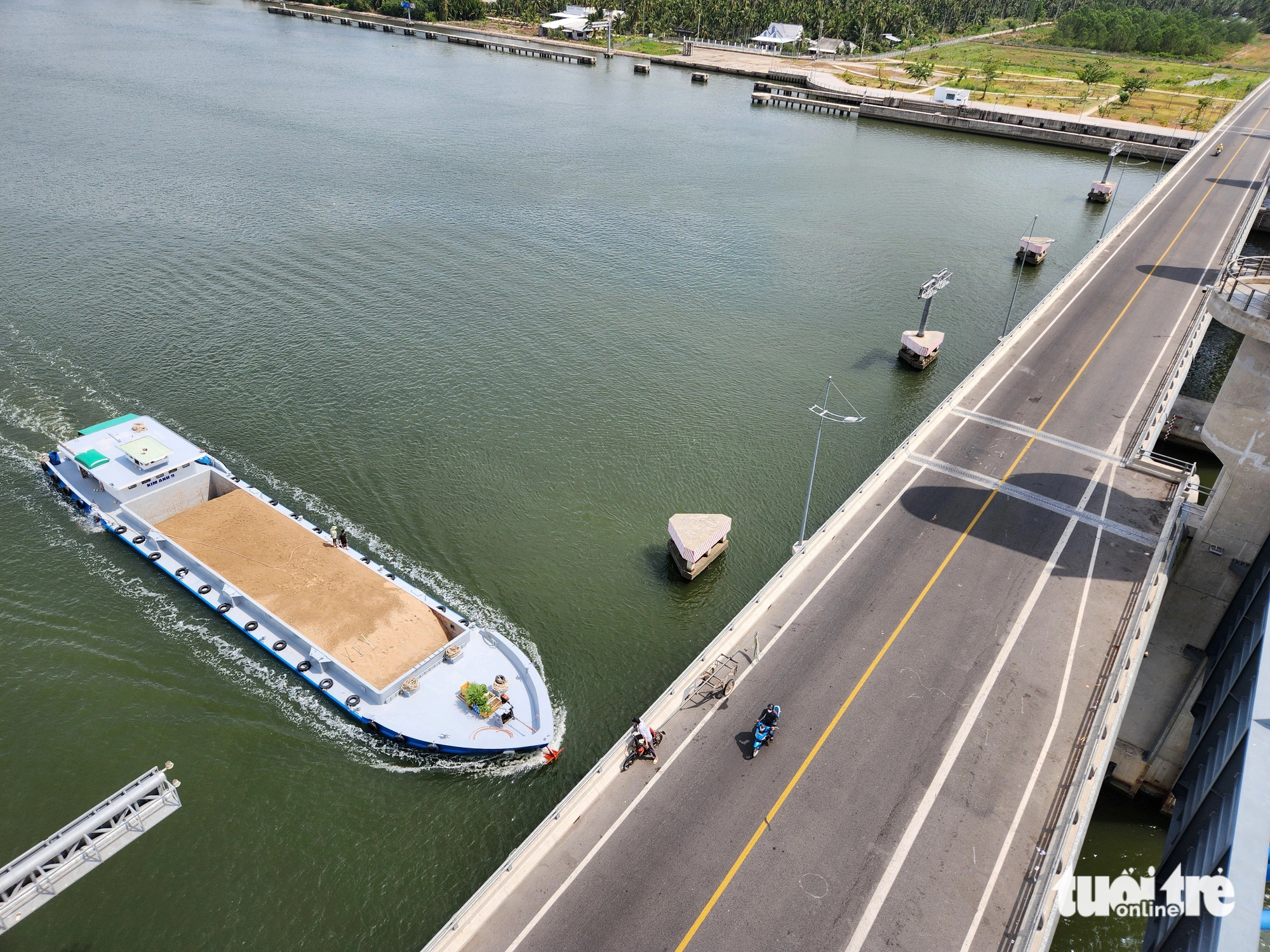A provincial leader has recently proposed the construction of a canal connecting the Saigon and Dong Nai river systems to the Mekong River to mitigate saline intrusion in the delta of southern Vietnam.
Tran Ngoc Tam, chairman of the People’s Committee of Ben Tre Province, presented the proposal during a meeting with Deputy Minister of Agriculture and Rural Development Nguyen Hoang Hiep on Tuesday.
Tam highlighted that upstream countries significantly influence the Mekong River flow.
Originating from the Tibetan Plateau, the Mekong is the world’s 12th-longest river and the third-longest in Asia.
It traverses southwest China, Myanmar, Laos, Thailand, Cambodia, and the Mekong Delta in southern Vietnam.
Tam suggested that diverting flows from domestic river systems like the Saigon River and Dong Nai River could meet the freshwater needs of Mekong Delta localities during drought and salinity seasons.
“It’s feasible to utilize the high terrain [in the southeastern region] to create a canal or construct a water pipeline system linking the network of these two rivers with Long An and Tien Giang Provinces, with the distance between each pair of localities spanning only a few dozen kilometers,” Tam stated.
He also proposed investing in anti-salinity sluice gate systems on the Ham Luong River, a Mekong River tributary flowing 70 kilometers through Ben Tre, as well as in the province’s north and south.
|
|
| Tran Ngoc Tam (L), chairman of the People’s Committee of Ben Tre Province, discusses saline intrusion prevention measures with Vietnam's Deputy Minister of Agriculture and Rural Development Nguyen Hoang Hiep (C) during a business trip in the province on March 12, 2024. Photo: Mau Truong / Tuoi Tre |
During the meeting, Deputy Minister Hiep noted that salinity levels in the Mekong Delta are currently at their highest after the dry season began in December.
Unusually high salinity has penetrated deeply into the main rivers, extending approximately 5km to 15km further than the average distance observed in previous years.
Forecasts anticipate two more waves of saltwater intrusion later this month and in early April, albeit at lower levels than at present.
In Ben Tre Province, salinity levels of 4/1,000 have been recorded 52-64km from the main river mouths, similar to the historic levels observed during the dry season of 2016.
Usual river salinity levels typically hover around 0.25/1,000, with thresholds at 0.5/1,000.
However, Hiep praised local residents for their efforts in averting significant damage.
“Currently, nearly 7,800 hectares of third-crop rice and over 23,000 hectares of fruit trees remain unaffected by saline intrusion,” he said.
Like us on Facebook or follow us on Twitter to get the latest news about Vietnam!



















































